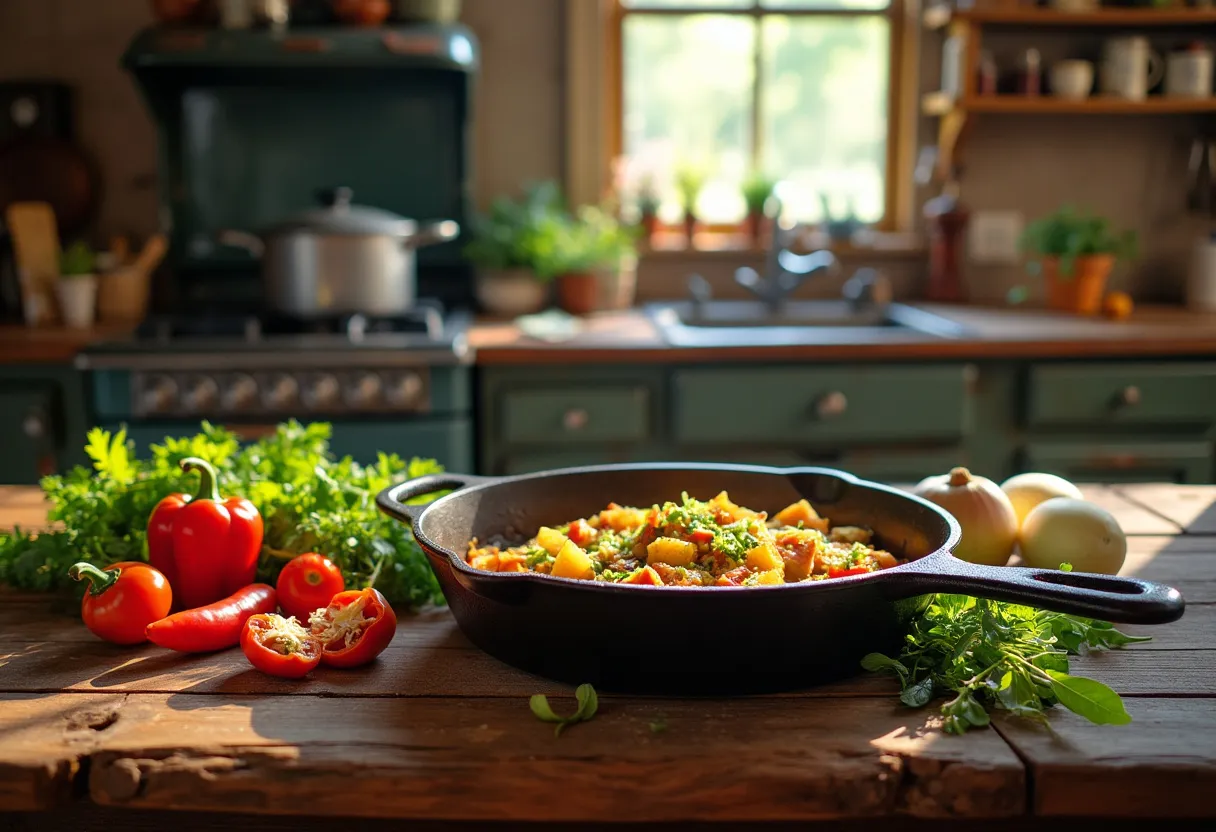
Exploring Authentic Cajun Cast Iron Cookware: Tips for Mastering Traditional Techniques
Published on 9/21/2024
Ethan Walker • 9/21/2024
As someone with deep roots in Cajun and Creole cuisine, one cannot overlook the importance of quality cookware in preserving the authenticity of traditional dishes. Cast iron cookware, with its rich history and unique properties, remains a quintessential tool in mastering the art of Cajun cooking. Whether you are a seasoned chef or a home cook eager to delve into this flavorful world, understanding how to use and maintain cast iron cookware is crucial.
The Significance of Cast Iron in Cajun Cooking
To truly appreciate why cast iron cookware holds a revered place in Cajun kitchens, one must consider its ability to evenly distribute heat and enhance flavors. Unlike other materials, cast iron can withstand high temperatures, making it ideal for searing meats and simmering those beloved one-pot meals such as jambalaya and gumbo. The non-stick surface that develops over time only adds to its allure, allowing dishes to glide effortlessly from pan to plate.
Choosing the Right Cast Iron Cookware
When it comes to selecting the ideal piece for your kitchen, there are a few key considerations:
- Size: Opt for a versatile size that suits the quantity of food you typically prepare. A 10 to 12-inch skillet is a great starting point.
- Weight: While the heft of cast iron contributes to its unparalleled heat retention, it may require more effort to handle.
- Finish: Some prefer pre-seasoned options, which offer convenience, while others enjoy seasoning the cookware themselves.
Each piece of cast iron cookware brings its unique charm to the cooking process, and finding one that matches your culinary style can greatly enhance your kitchen experience.
Seasoning Your Cast Iron Cookware
A well-seasoned pan improves its non-stick capability and prevents rust, ensuring longevity. Seasoning involves applying a layer of oil to the surface and heating it until it forms a protective layer.
- Clean the cookware with warm water and a brush, avoiding soap to not strip existing seasoning.
- Apply a thin coating of vegetable oil to all surfaces of the cookware.
- Preheat your oven to 375°F and place the cookware upside-down in the oven. Allow it to bake for at least one hour.
Maintaining Your Cast Iron Cookware
Maintenance is key to preserving the functionality of your cast iron:
- After each use, allow the cookware to cool slightly before cleaning.
- Use warm water and a scrubber to remove food residues, then dry immediately.
- Reapply a light layer of oil after cleaning to maintain the pan’s finish, preventing it from becoming dull or rusty.
With proper care, your cast iron cookware can last generations, producing dishes rich in tradition and flavor that capture the essence of Cajun cooking.
Embracing the Longevity of Tradition
Embarking on a culinary journey with cast iron cookware allows you to embrace not only the flavors but also the legacy of Southern cuisine. Like many before you, the commitment to skillfully maintaining and utilizing this kitchen staple will reward you with dishes that tell a story of their own. As we continue to share these delectable tastes with our loved ones, we contribute to the vibrant tapestry that is Cajun culinary heritage.
So, there's my take on exploring the wonders of cast iron cookware in the context of Cajun cooking. Investing in a piece of this heritage not only enhances your culinary skills but also helps pass down the spirit of Southern hospitality and flavors to future generations. If you're interested in learning more about traditional techniques, don't hesitate to join one of my cooking classes or discussions. Let's keep the spirit of Cajun cuisine alive, one cast iron skillet at a time!
Ethan Walker
Senior Chef and Cultural Food Historian | I've been cooking
Ethan was born and raised in the culturally rich city of New Orleans, where food is woven into the fabric of life. His family has passed down Cajun and Creole recipes for generations, and Ethan became passionate about preserving these culinary traditions. After working in various restaurants, he eventually opened his own eatery, which became known for its authentic gumbo, jambalaya, and beignets. Now semi-retired, Ethan teaches cooking classes and writes about the history of Southern cuisine. His mission is to ensure that traditional Cajun and Creole cooking remains vibrant for future generations.